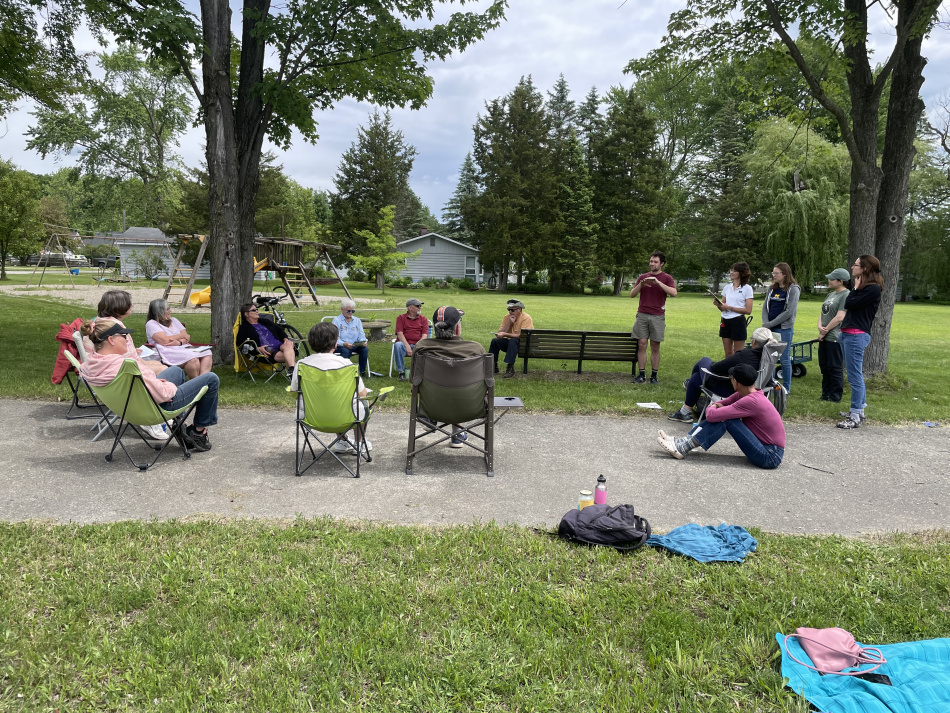
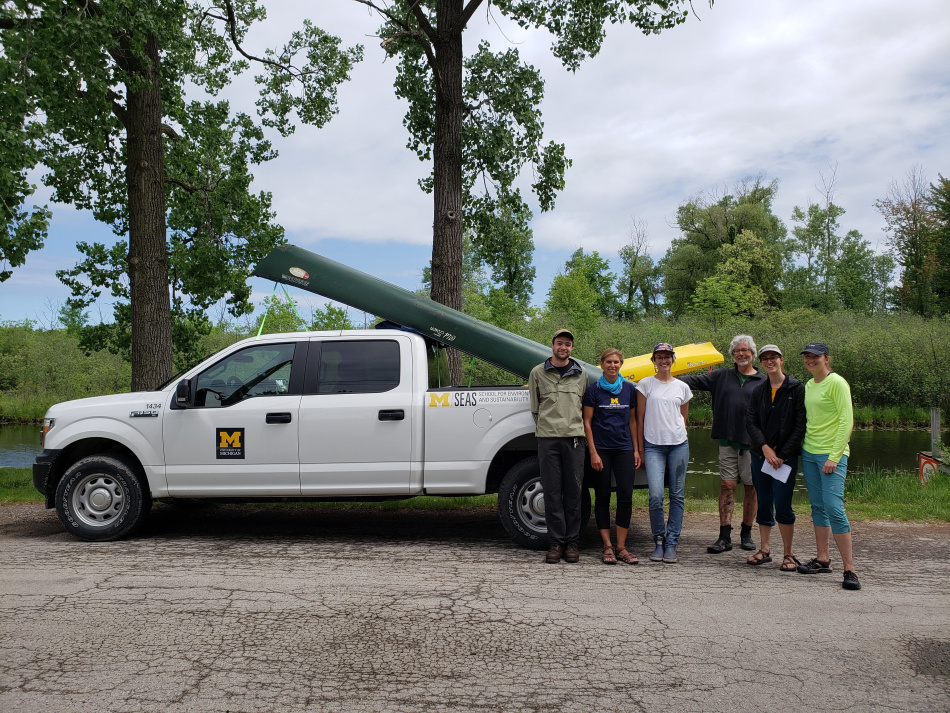
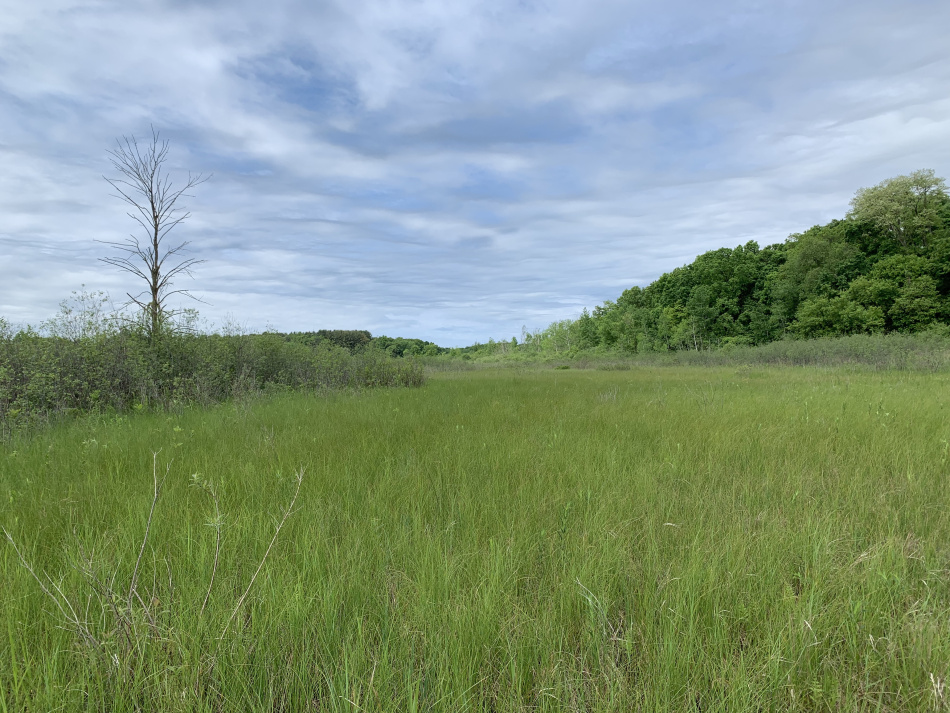
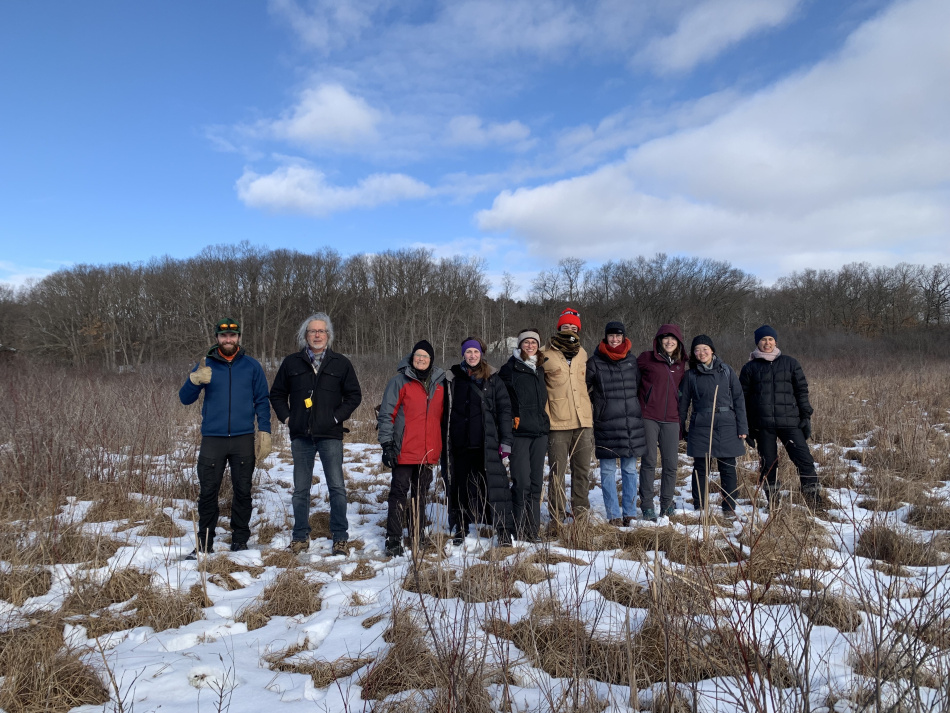

Site Background
St. Pierre is a 130-acre wetland property managed by the School for Environment and Sustainability on the northern undeveloped shoreline of Bass Lake in Hamburg Township, 14 miles northwest of Ann Arbor. This site was donated in 1975 by Sam and Angeline St. Pierre to be used for teaching and research in fisheries, wetland ecology, stream biology, and other aquatic ecology topics. There are two communities neighboring the site: One on the east side with a canal between the site and the neighborhood and another on the northwest side. Part of the northern part of the property borders a popular biking and walking trail, the Lakelands Trail, which offers open views of St. Pierre Wetland. The landscape surrounding Bass Lake has additional wetlands and waterways, and includes the Huron River Chain of Lakes, a series of nine connected lakes along the main branch of the Huron River.
In 2017 the Huron River Watershed Council completed an on-site field assessment of the property because an analysis of watershed-level GIS data showed that it likely contained valuable ecosystems. The field assessment found that the parcel includes a pristine prairie fen of very high ecological quality and that overall the wetland scored in the top ten of all wetlands in the watershed. Invasive species are pervasive, however, with cattails, purple loosestrife, and glossy buckthorn encroaching on the north and northwest sides, close to the neighboring developments.
Project Goals
We formed our master’s capstone project team in January 2022 to create a culture of stewardship and trust among stakeholders, uphold the research and education mission of the property, and protect the biodiversity and ecosystem services of the wetland. To inform our recommendations and actions toward these goals, we took three main approaches:
Alice Colville, Liam Connolly, Laura Gumpper, Kimberly Heumann, Rachel Kaufmann, Xu Zhou
Over the course of this project, we completed deliverables that can be used to create opportunities for education and research at St. Pierre Wetland and to inform engaged restoration of wetlands elsewhere. We investigated and documented the challenges and opportunities of working with a privately-owned university research property, conducted remote sensing analysis of invasive species at the wetland, developed and initiated informed experimental removal of glossy buckthorn via field research workdays, and created an ESRI StoryMap to showcase the features and potential to UM affiliates.
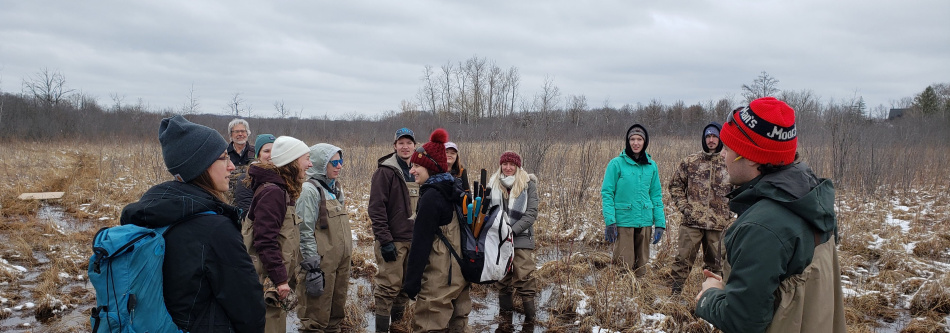
It was great to get out into the wetland and do some hands-on work with a clear science goal. As a SEAS student, this was one of the only opportunities I had for fieldwork this whole semester! It was a great hands-on wetland and invasive species removal experience... It really was a highlight for me this semester."
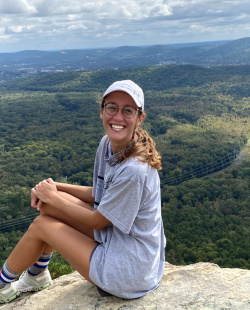
Alice’s interests lie in how the use of geospatial applications can demonstrate the interconnections between Earth’s systems, anthropogenic forces, and climate change. In her work with Ducks Unlimited, she has explored her interests in wetland conservation and environmental stewardship. She intends to pursue a career restoring and protecting coastal ecosystems where she may utilize and translate her knowledge of freshwater and marine environments using GIS and Remote Sensing.
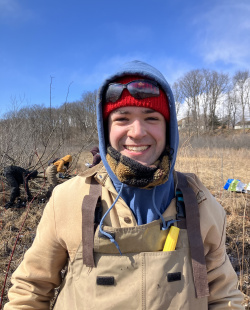
Liam Connolly is interested in engaging the public in stewardship and restoration efforts. He is preparing to use what he has learned while working with St. Pierre Wetland to inform community-oriented work that cultivates resilience in stakeholder relationships and ecosystem health.
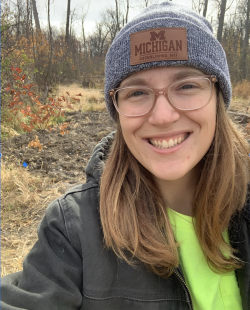
Laura worked as an engineer before transitioning to the environmental field. Raised in Metro Detroit, Laura is passionate about environmental stewardship in Southeast Michigan and will serve this community as an Environmental Consultant post-grad. During her M.S., she worked part-time on various projects aimed at conserving and restoring the biological function and beauty of ecosystems and plans to continue this work in her full-time role.
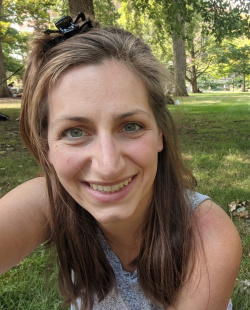
Kimberly previously earned a Bachelor in Social Work and has pursued learning about topics such as social vulnerability and adaptation in the environment. She has experience in education, restoration, organizational leadership, and community engagement. She is excited to pursue a career in creating connections between groups and individuals and enhancing education and engagement opportunities for the benefit of both people and the planet.
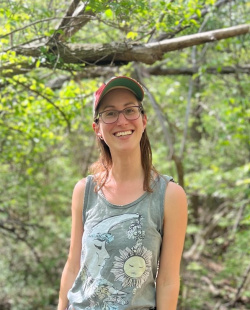
Experiences in teaching, farming, and trail work inform and motivate Rachel’s studies at the University of Michigan. Her focus is land use planning as a tool to protect natural areas and to support affordable, sustainable lifestyles. Upon graduating, Rachel aims to engage public and private landowners to plan and implement strategies for restoring, monitoring, and managing Michigan’s natural communities.
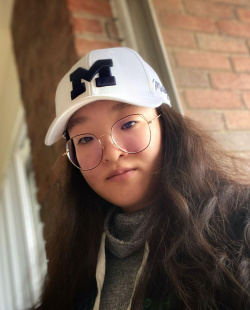
Zhou is passionate about sustainable design and ecological restoration. With a unique skill set in conveying ideas through visual storytelling, Zhou is also eager to delve into the social impact of landscape design, including community engagement and environmental justice. Following graduation, Zhou hopes to pursue a career in science-based design and explore the human-nature relationship as a landscape designer.
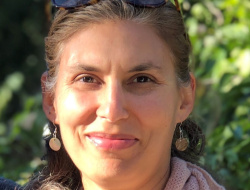
Academic Program Specialist at the University of Michigan's School for Environment and Sustainability
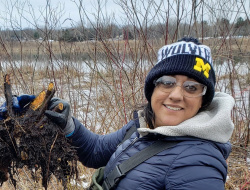
University of Michigan School for Environment and Sustainability Building and Facilities Manager
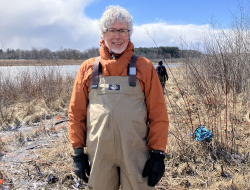
President of the Shan-Gri-La Homeowners' Association

"Headquartered in Ann Arbor, MI, The Stewardship Network (TSN) is an award-winning 501(c)(3) nonprofit organization with a 20-year history of caring for our natural world. Through shared experiences, knowledge, and resources, [they] continue to build an ever larger and more impactful network of place-based collectives (TSN Member Communities) across the Great Lakes and California to do the most important work of our lifetimes."




